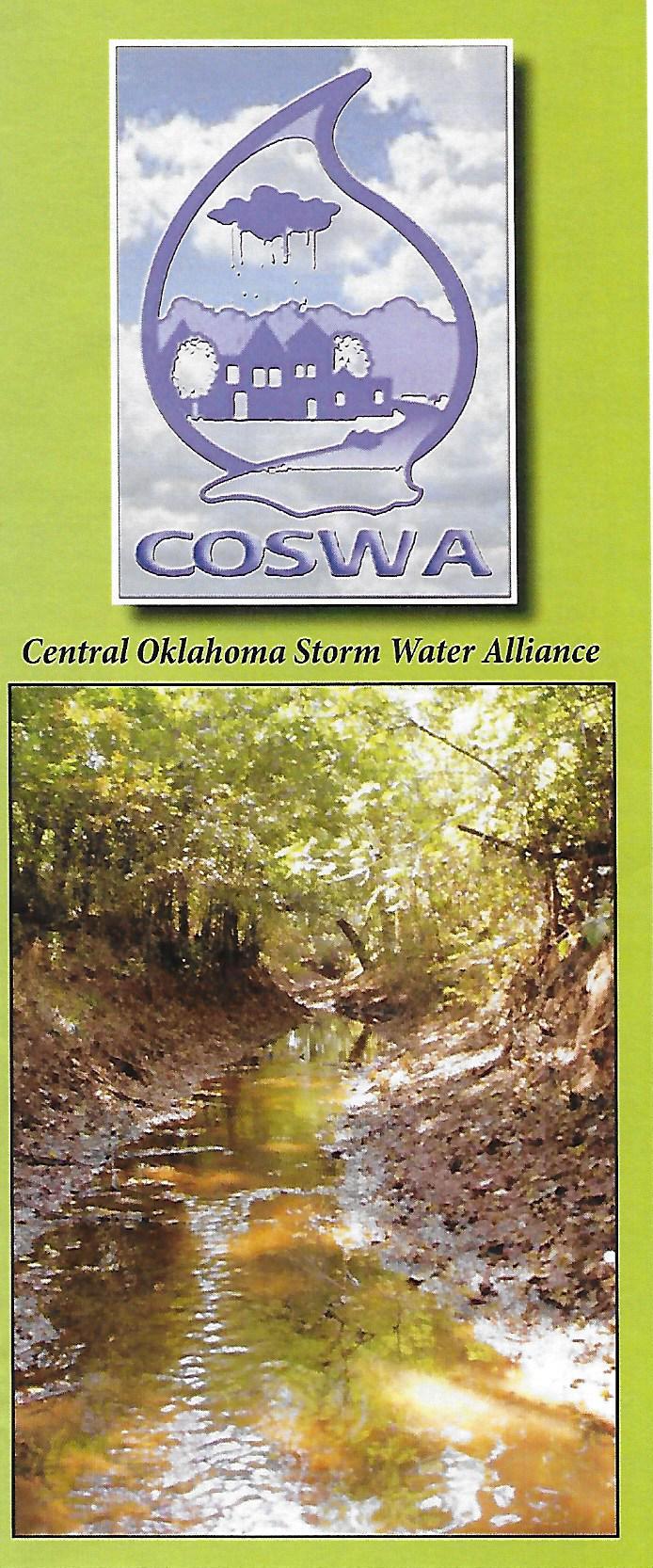Stormwater
Water quality starts at home where each of us has an impact on the pollutants that we introduce into our environment. The US Environmental Protection Agency (EPA) suggests these tips for protecting water quality:
- Use fertilizers sparingly, and sweep the excess off driveways and sidewalks.
- Never dump or discard anything down storm drains.
- Vegetate bare spots in your yard.
- Compost your yard waste.
- Minimize pesticide use, and consider Integrated Pest Management (IPM).
- Direct gutter downspouts onto the soil, away from paved surfaces.
- Take your car to a car wash instead of washing it in the driveway.
- Check your car for leaks, and recycle motor oil.
- Pick up after your pet.
- Have your septic system pumped and inspected regularly.
For more information about the Green Country Stormwater Alliance, contact INCOG at 918-584-7526 or by email at stormwater@incog.org. For local information, contact your city or county stormwater coordinator.
For more information about stormwater protection, contact the Oklahoma Department of Environmental Quality (DEQ) Water Quality Division at 405-702-8100 or visit the DEQ website at www.deq.state.ok.us/WQDnews/stormwater/index.html.
For stormwater-related complaints, call the DEQ statewide hotline at 1-800-522-0206. This number is answered 24 hours a day, 7 days a week. Citizens may fill out an online complaint form at the DEQ website at www.deq.state.ok.us/ECLSnew/Complaints/onlncmpl.html and submit it electronically to the DEQ. The site also provides contact links to DEQ.
For more information about household pollutant disposal options, visit www.metrecycle.com or call 918-584-0584.
Definition of stormwater. Stormwater, also spelled storm water, is water that originates from rain, including snow and ice melt. Stormwater can soak into the soil (infiltrate), be stored on the land surface in ponds and puddles, evaporate, or contribute to surface runoff. Most runoff is conveyed directly to nearby streams, rivers, or other water bodies (surface water) without treatment. In natural landscapes, such as forests, soil absorbs much of the stormwater. Plants also reduce stormwater by improving infiltration, intercepting precipitation as it falls, and by taking up water through their roots. In developed environments, such as cities, unmanaged stormwater can create two major issues: one related to the volume and timing of runoff (flooding) and the other related to potential contaminants the water is carrying (water pollution). In addition to the pollutants carried in stormwater runoff, urban runoff is being recognized as a cause of pollution in its own right. Stormwater is also an important resource as human population and demand for water grow, particularly in arid and drought-prone climates. Stormwater harvesting techniques and purification could potentially make some urban environments self-sustaining in terms of water. --Definition from Wikipedia

There are several ways to help control stormwater runoff. You can use Rain Barrels, Rain Tanks,
Green Spaces, and Rain Gardens. For more information on different products and how to make
your own products check out Youtube. Other places for information on stormwater can be
found at Central Oklahoma Stormwater alliance (COSWA) and Green Country Stormwater
alliance.
The city is currently working on setting a date for Household Hazardous Waste collection. The
dates will posted when made available.
Any questions? Please fill free to call City Hall at (405) 454-2951
